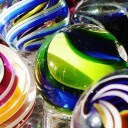 I am extremely lucky to have been chosen
I am extremely lucky to have been chosenby Dr Zeman the Medical Director of the Royal Rehabilitation Centre Sydney, as one of the research patients here at Coorabel.
Dr Zeman has been teaching other doctors at RRCS to use the drug Dysport or Botox, so, I get to have it used on me, which allows the new doctors to get to use the drug and me to get the benefit of Botox. Yes Botox, the same thing that people who like to look 'younger' and 'refreshed', have injected into their faces, but for me, it's not a case of 'how much better will I look', but how much easier is it to use my hand, if at all.
RRCS have a new OT Lisa, who is fantastic and she has come to Royal Rehab from Westmead Children's Hospital, Brain Injury Dept, and now does the same thing for us, however, she only spends 1-2 days a week in outpatients.
She checked out my hand and was curious to see my wrist was turning down wards and asked Dr Zeman if he would object to her doing some more therapy on my arm, as they were doing all sorts of wonderful things that she had learnt from working with the children. Dr Z and she talked about it and he felt that she and I were a good match and he said, YES!
I got the botox today and next Fri I am getting a soft cast on it. They change the casts every three days for about two weeks and hopefully my hand will have come back up (because they are lengthening the tendon), **they will then make me two new splints I can wear day and night,** and hopefully, things will look up from then on. I am very, very fortunate!
This is what she and another OT Ian are doing: They have bent my hand back so it is 45 degrees to my arm and cast it (with plaster)for 3 days, then they do it again, casting it for 2 days, then again, casting it for 1 day, until they hope, my hand will be straight enough to have splints made. **I will wear them constantly over the next 6 months (the length they hope that the Botox will work in my arm), except for an hour a day when I am doing my hand/arm exercises.**
**Now I have to make a few corrections because I have written things that I have got mixed up and mistaken! Firstly, I got the cast off today and I find out that I will only be having one new splint for my hand because Lisa doesn't want me to rely on the splint and it will do some nasty things if I wear it constantly - things that I had no idea that hands went through! My hand, it has swollen up hugely, I think it's because of having the cast on but I am not sure and thank heavens I will be going back to Rehab on Friday (today it is Wednesday)so I will ask Lisa then. The lengthening of the tendon has hurt quite a lot, but it is something that I can see the benefit of straight away!**
People still get confused when I say that 'I am getting Botox in my arm', and they say 'don't you mean your face?', no, I don't! It is amazing what researchers are finding out that they can do with some medical conditions, using drugs that were made for one thing, they are using for another or they are being used on a plethora of different kinds of complaints.
Take Dysport or Botox (protein extracted from the bacterium Clostridium Botulinum) it has been used for neuromuscular disorders, like spasticity, (*the meaning I have taken from Wikipedia, so that we all know what I am talking about):
**Spasticity is found in conditions where the brain and/or spinal cord are damaged or fail to develop normally; these include cerebral palsy, multiple sclerosis, spinal cord injury and acquired brain injury including stroke. Muscles affected in this way have many other potential features of altered performance in addition to spasticity, including muscle weakness; decreased movement control; clonus (a series of involuntary rapid muscle contractions often symptomatic of muscle over-exertion and/or muscle fatigue); exaggerated deep tendon reflexes; and decreased endurance.**
[When I have been researching the articles for this blog, I have been suitably chastened by the much more severe kinds of problems, the diagnosis and treatment of the conditions that these drugs have opened up to me, I am inspired by all the amazing people all over the world who have these different conditions or are researching them.]
***Then I look at the next paragraph that I have ready for this blog...'I am excited about my arm, even though it is very painful, and I am feeling a bit sorry for myself, because at the moment, the ot's at Rehab are trying to straighten my hand and my arm it hurts - badly'*** and I am ashamed. Yes, it does hurt, but compared to others, I have nothing to complain about.
I am ashamed that I should be whining and moaning, when someone like Lara exists:
*See: Lara's Gondola - a book that Lara Friedman has written.







